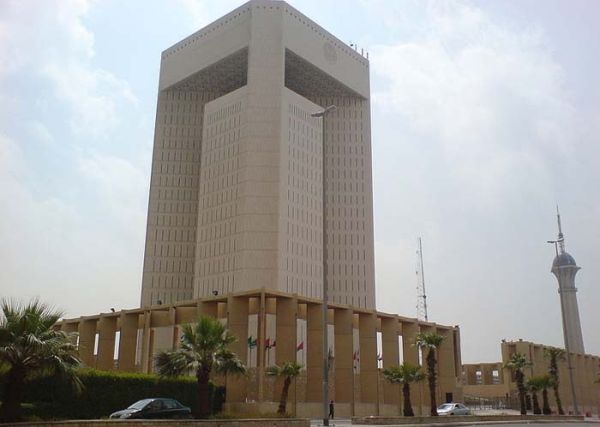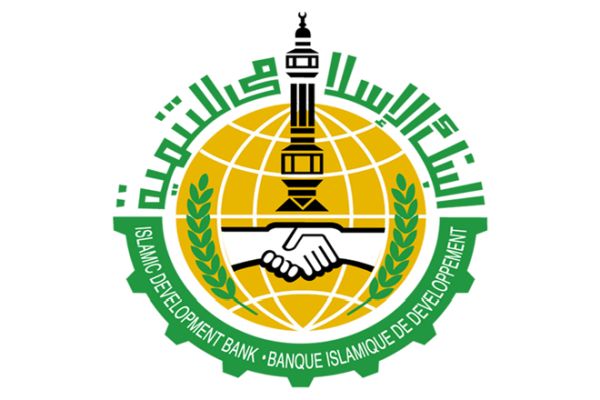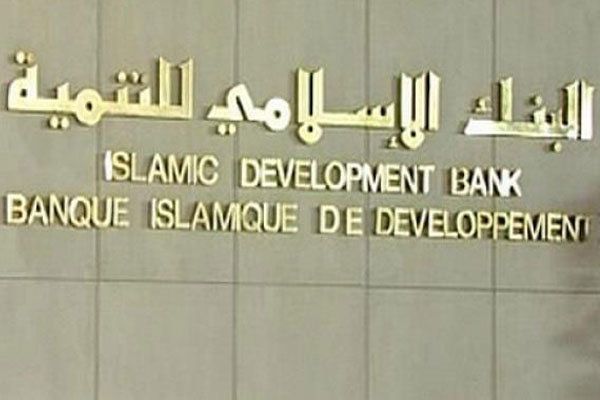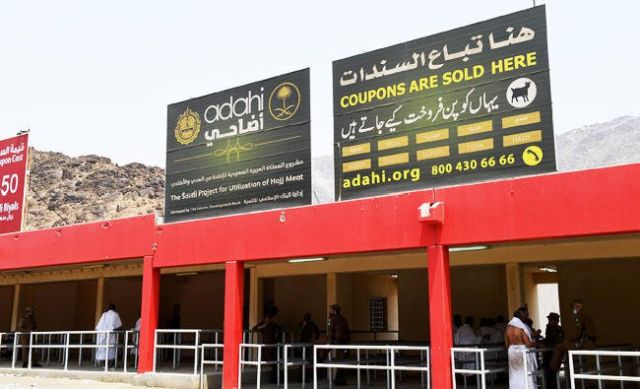
by admin | May 25, 2021 | Investing, Muslim World

IDB Headquarters, Jeddah, Saudi Arabia
Jeddah : The Islamic Development Bank (IDB) Group has affirmed its commitment to further strengthen the mechanisms of economic and trade cooperation, expand and deepen partnerships among member countries in the fields of trade, investment and finance, as well as mobilize the necessary resources to meet economic challenges and achieve sustainable development.
This came in a speech delivered by Eng. Hani Salem Sonbol, CEO of ITFC on behalf of IDB president Dr. Bandar Hajjar, during the ministerial consultative meeting of the member states of Organization of Islamic Cooperation held on the sidelines of World Trade Organization’s 11th Ministerial Conference opened recently in Buenos Aires.
In his speech, Eng. Hani explained that the member countries are facing many economic, and social challenges, most visible of which are the accelerated growth of population, climate change, and an increase of unemployment rates, especially among youth.
“To meet these challenges, the Bank depends on the 1440H vision, in addition to the Bank’s ten-year strategic framework, and the Bank president’s five- year program, which focuses on enhancing the Group’s fieldwork presence, efficiency & empowerment, increase the awareness of IDB, and enhancing the ties with development partners and finally, the acquisition of science and innovation in introducing the Bank’s model of finance and financial governance and providing integrated development solutions.
“We sincerely hope that the five-year program will contribute to supporting the member countries’ efforts towards finding practical solutions to the developmental challenges that face them.”
In an expansionary move by the IDB Group to finance the private sector in Islamic countries, Eng. Hani has announced, on behalf of IDB President, that five new offices will be established in Egypt, UAE, Suriname, Uganda, and Bangladesh in the coming period to play a crucial role in providing development assistance to member states more effectively. He affirmed that these new offices would play a crucial role in providing developmental assistance to member countries more effectively.
He stressed the importance of lifting the levels of intra-OIC trade, noting that this represents a strategic objective of the Group in the context of economic globalization and the resulting emergence of international economic entities and interests that do not pay attention to small and marginal entities, And the application of the WTO Agreements with all the principles and standards established for trade practices between States.
On their part, the ministers have stressed on IDB’s developmental role and effective contribution to developing the capacities of the countries in the fields of trade, regional integration, and cooperation. Pointing out the need for the Bank to continue its support of member countries in WTO accession issues, trade facilitation and services and new issues for negotiation.
The meeting, chaired by Eng.Tariq Qabeel, the Egyptian minister of trade and industry, was attended by most of the member countries participating in the WTO ministerial meetings held from 10 to 13 December 2017.
—SM/UNA-OIC

by admin | May 25, 2021 | Markets, Muslim World, Online Marketing, Technology
 Jeddah : The Islamic Development Bank (IDB) will announce its plan today to launch a major online platform that will be open for innovators around the world. The platform will offer solutions for the benefit of the developing world in 5 focus areas of the Global Sustainable Development Goals: Clean water and sanitation, affordable and clean energy, good health and well-being, quality education and zero hunger.
Jeddah : The Islamic Development Bank (IDB) will announce its plan today to launch a major online platform that will be open for innovators around the world. The platform will offer solutions for the benefit of the developing world in 5 focus areas of the Global Sustainable Development Goals: Clean water and sanitation, affordable and clean energy, good health and well-being, quality education and zero hunger.
Senior Advisor to the President of IDB on Science & Technology, Dr. Hayat Sindi will make the announcement on behalf of the Bank during a presentation at the Cleantech Venture Day in London, at 3:45 BST.
“We welcome the best corporations in the world to cooperate with us, and we will also strive to be an enabler on the deployment of new technologies by offering mentoring and funding. For us it is important to build this bridge and to connect the world to work towards the Sustainable Development Goals,” says Dr. Hayat Sindi.
The new online platform will serve as a connecting ecosystem and will bring together policymakers, research institutions and private sector companies developing sustainable technologies to work together and bring lasting solutions to the problems of humanity.
Utilizing Science and Technology to address development challenges is one of the core priorities of IsDB.
The Islamic Development Bank is a multilateral development institution, established in July 1975 with Headquarters in Jeddah, Saudi Arabia. The IsDB provides development financing and technical assistance to its 57 member countries in line with its overall objective of fostering economic development and social progress; it finances projects and programs in both public and private sectors in member countries by investing in economic and social infrastructure, providing technical assistance, and promoting foreign trade. The IsDB also assists Muslim communities in non-member countries and undertakes research studies in Islamic economics and banking.
—IINA/SM/OIC-UNA

by admin | May 25, 2021 | Muslim World
 Jeddah : The Islamic Development Bank (IDB) Group announced the allocation of $1.5 billion to finance development projects in Tunisia within the framework of the new strategy for the next three years.
Jeddah : The Islamic Development Bank (IDB) Group announced the allocation of $1.5 billion to finance development projects in Tunisia within the framework of the new strategy for the next three years.
IDB Regional Manager of Arab Countries Programs Ahmed Saleh al-Hariri said in a speech during a workshop on the preparation of the strategic partnership document of the Islamic Development Bank with Tunisia, that the funding will be in the form of soft loans and grants by not more than five percent of the total amount.
Hariri that the IDB’s new strategy will be based on supporting social integration and inclusive development, contributing to the development of infrastructure, supporting the private sector and attracting investors from member countries and others to Tunisia. He noted that the bank will support the export of Tunisian goods to various countries, as well as increasing the efficiency of exporters in the areas of finance and marketing and provision of employment opportunities for young people.
For his part, Tunisian Minister of Investment and International Cooperation Zied Ladhari stressed the importance of partnership with the IDB to finance a number of development projects that were presented during the investment seminar held in Tunis in November 2016. He pointed out that the partnership with the IDB will promote technical cooperation through backup linkages and exchange of successful experiences in priority areas to enhance the return of Tunisian competencies from outside the country.
—AB/IINA

by admin | May 25, 2021 | Halal Food, Halal Industries, Muslim World
 Makkah : The Utilization of Sacrificial Meat (Adahi) is a project undertaken by Saudi Arabia in collaboration with the Islamic Development Bank (IDB) that aims to distribute sacrificial meat among over 30 million people in 27 countries in the Asian and African continents.
Makkah : The Utilization of Sacrificial Meat (Adahi) is a project undertaken by Saudi Arabia in collaboration with the Islamic Development Bank (IDB) that aims to distribute sacrificial meat among over 30 million people in 27 countries in the Asian and African continents.
In the past Hajj seasons, people used to freeze and ship the excess meat from lamb sacrifices to their countries. The abundance of meat during Hajj became a problem over the years. Pilgrims could not eat all the sacrificed meat and it was left on the streets, causing a sanitation crisis, bad smells and disease. The authorities then would bury the meat.
Saudi scholar Saeed Al-Amoudi told Al-Hayat that the increase of pollution caused by the lamb sacrifices led the Kingdom to take the first initiative in 1983 to avoid such waste and to help the poor. The Kingdom assigned the IDB to manage the project along with the Saudi authorities.
In 2000, the Adahi project was developed, with over 40,000 employees working in different fields such as management, supervision, slaughtering, shipping and distribution.
Every year, 30,000 heads of sheep, cows and camels are slaughtered to be distributed to 30 million poor people and refugees in 27 countries in Asia and Africa.
A center for treating the excess meat was also established. The center is capable of processing 500 tons of waste per day and turning it into natural fertilizers, separated from the extracted fat that can be used in factories. Thus, the center is able to get rid of the excess meat in an eight-day period following the Hajj.
This unique project emphasizes the creative ideology of turning problems into innovative solutions, and stresses the efforts of the Kingdom to provide a better life for the less fortunate.
—AG/IINA

by admin | May 25, 2021 | Corporate, Corporate Buzz, Muslim World
 Jeddah : The Islamic Development Bank’s “AAA” credit rating was recently reaffirmed with a “Stable Outlook” by Moody’s. Concurrently, the trust certificates issued by IDB Trust Services Ltd have also been affirmed at ‘AAA’.
Jeddah : The Islamic Development Bank’s “AAA” credit rating was recently reaffirmed with a “Stable Outlook” by Moody’s. Concurrently, the trust certificates issued by IDB Trust Services Ltd have also been affirmed at ‘AAA’.
The ratings and the stable outlook reflect the intrinsic strength of IDB; in particular its strong capital base, solid liquidity levels, strong shareholder support, prudent financial and risk management and generally low solvency risks compared with other regional multilateral development banks (MDBs). This is the 11th consecutive year that IDB is assigned “AAA” ratings by Moody’s.
The IDB remains amongst the most highly-rated MDBs and the highest in the Muslim World. The ‘AAA’ rating enhances the Bank’s capacity to mobilize external resources to fulfill its development mandate and play a leading role in development of the Islamic Finance Industry.
IDB is a multilateral development bank established in 1973 with the purpose of fostering economic development and social progress of its member countries and Muslim communities in non-member countries in accordance with the principles of Islamic Finance.
Dr. Bandar Hajjar, President of the IDB Group, congratulated all member countries, IDB Board members and staff for this important achievement. He renewed IDB’s commitment to exert maximum efforts to realize the objectives of the 2020 Vision.
—AG/IINA





